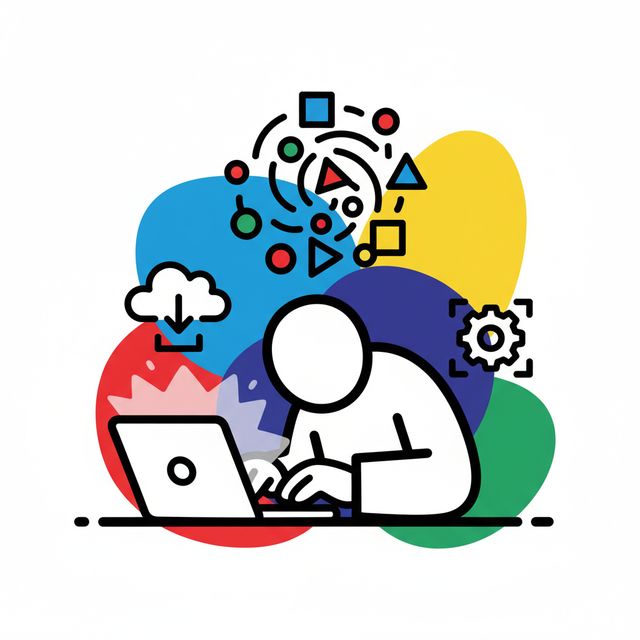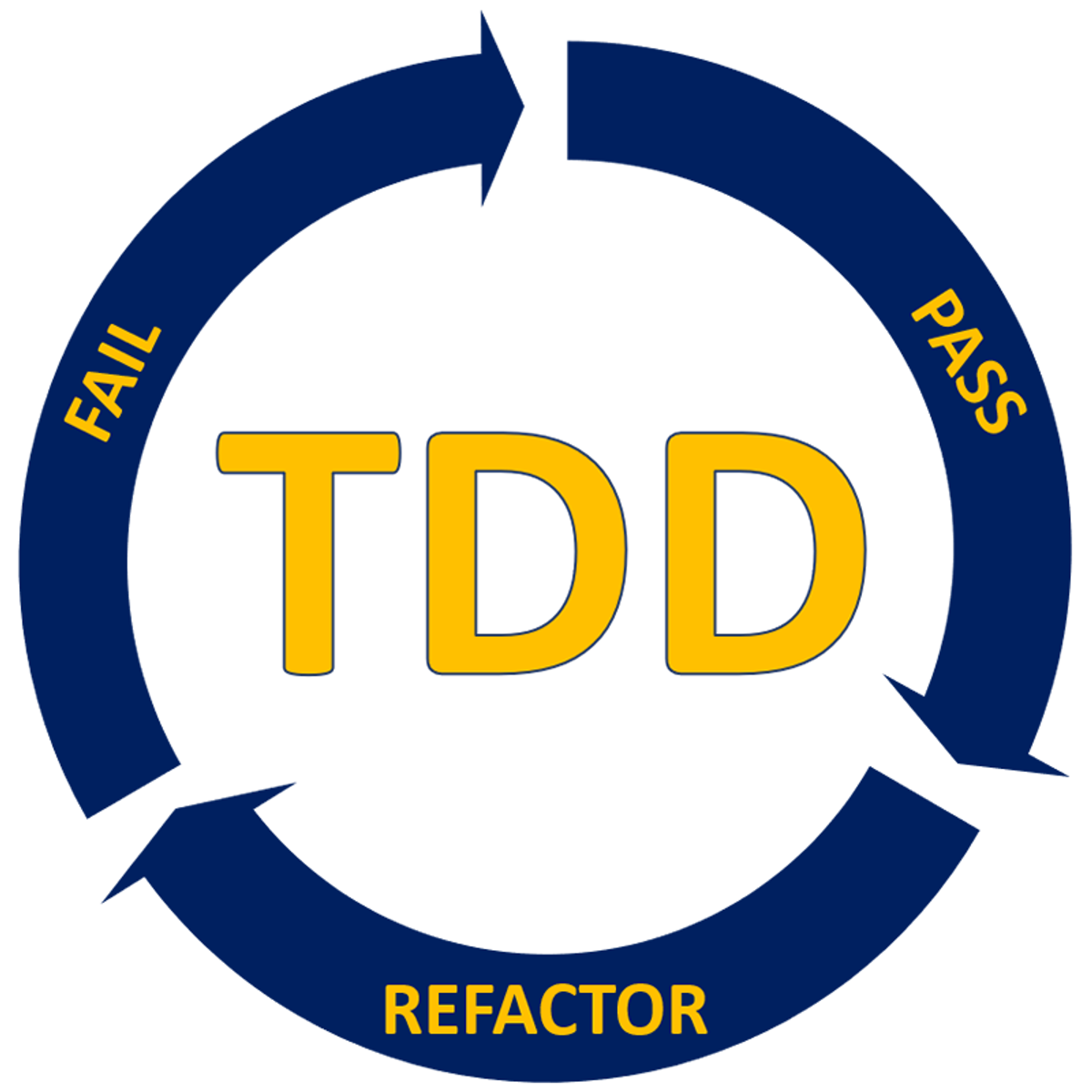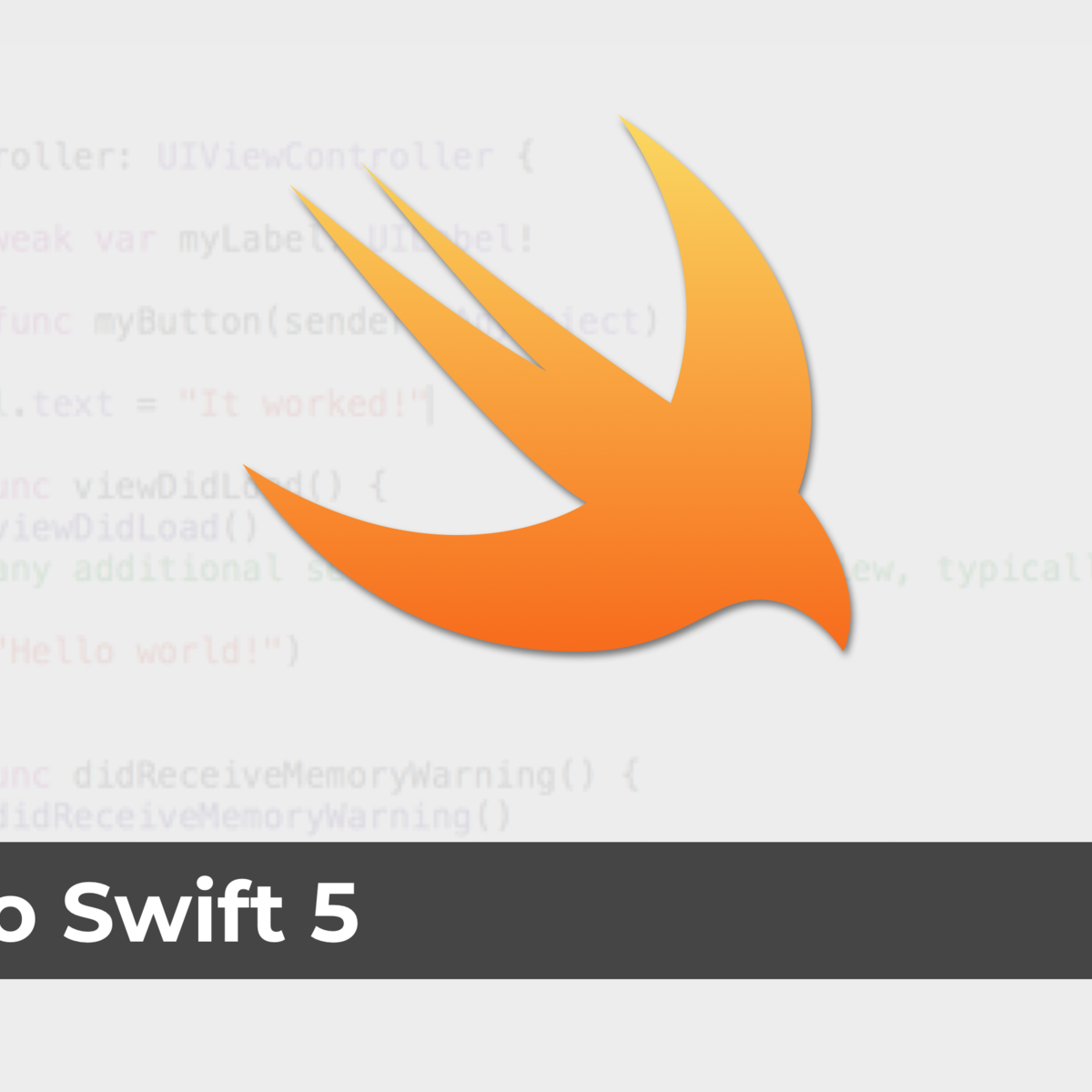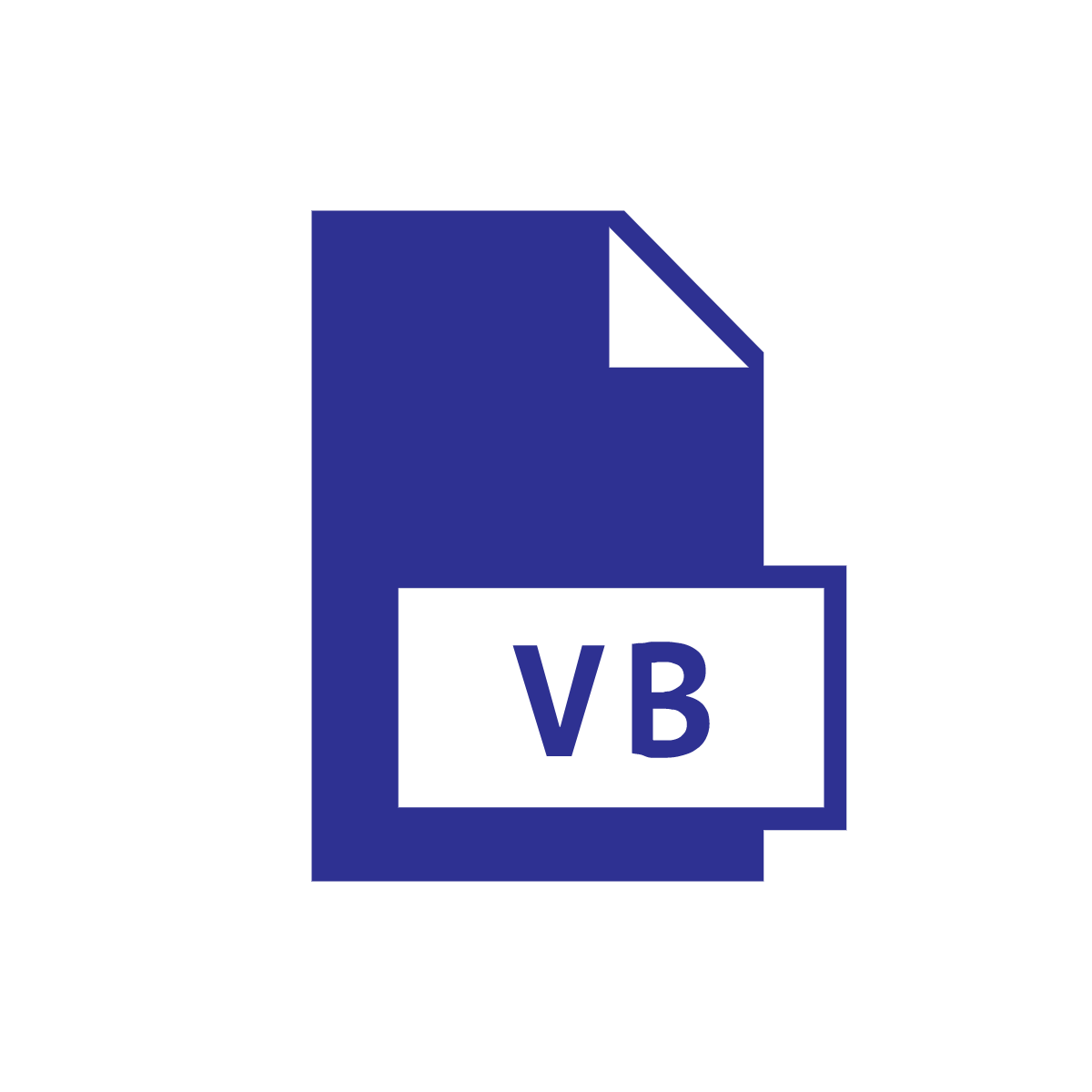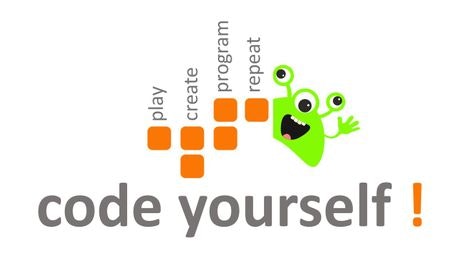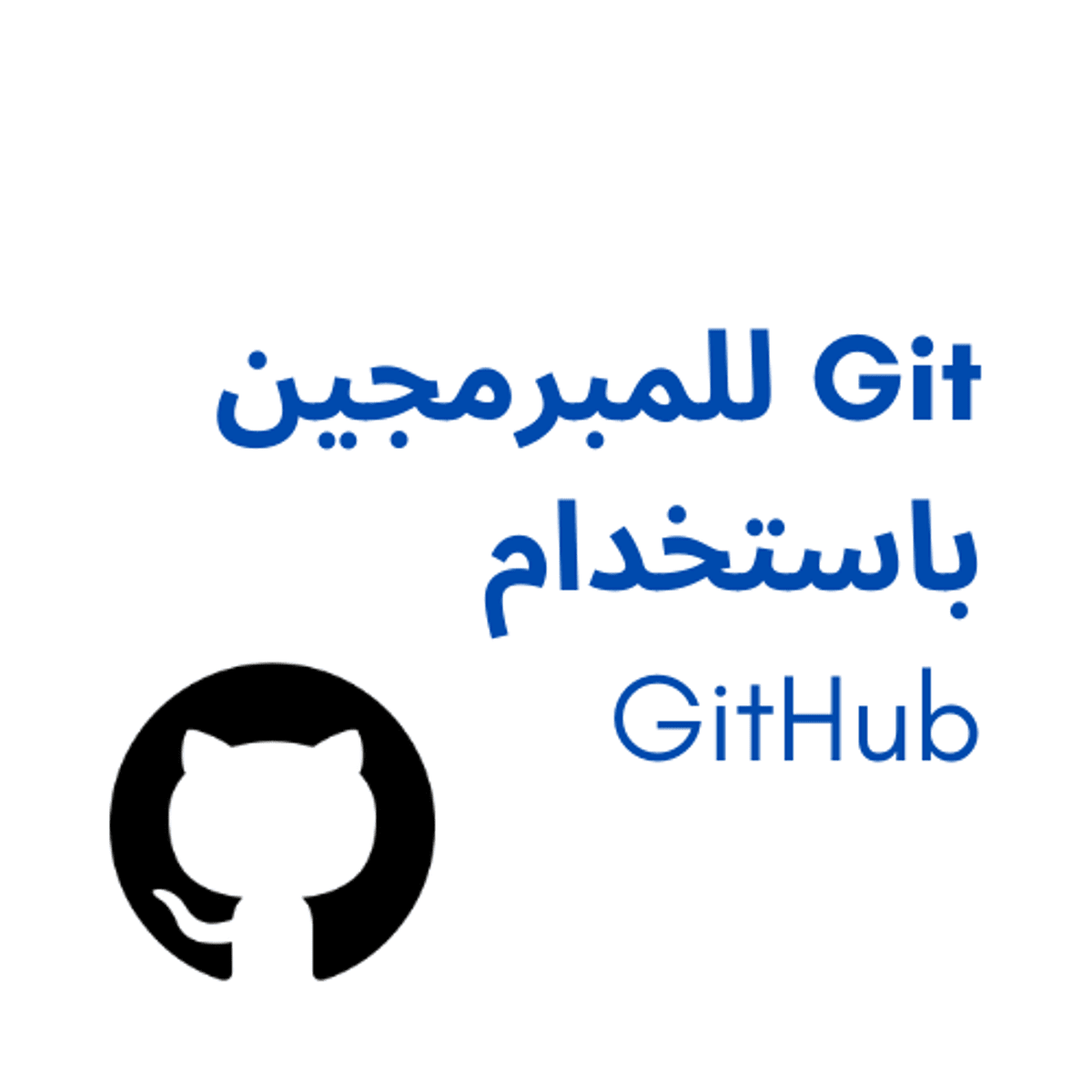Software Developer
Software Developer: A Comprehensive Career Guide
Software development stands at the core of our digital world, involving the creation, design, deployment, and maintenance of software applications. It's the process behind the apps on your phone, the websites you visit, and the systems that power businesses and infrastructure globally. Software developers are the creative minds and skilled engineers who turn ideas into functional, reliable code.
Working as a software developer can be incredibly engaging. You might find excitement in solving complex logical puzzles through code, collaborating with diverse teams to build innovative products, or seeing your creations used by potentially millions of people. The field is constantly evolving, offering continuous learning opportunities and the chance to work with cutting-edge technologies.
Introduction to Software Development
What is Software Development?
Software development is the systematic process of designing, creating, testing, and maintaining software systems. It encompasses a wide range of activities, from understanding user needs and defining requirements to writing code, debugging errors, and ensuring the final product is robust and efficient. Think of it as architectural design and construction, but for the digital realm.
The scope is vast, covering everything from simple mobile applications and websites to complex enterprise systems, operating systems, and intricate embedded software controlling hardware. Developers use various programming languages, frameworks, and tools to bring these digital solutions to life.
Ultimately, software development aims to solve problems or fulfill needs through technology. It requires a blend of technical skill, logical thinking, creativity, and often, teamwork to build solutions that are not only functional but also user-friendly and scalable.
This field often involves breaking down large, complex problems into smaller, manageable parts. Developers work iteratively, building features, testing them, and refining them based on feedback, ensuring the software evolves to meet changing requirements.
A Brief History and Evolution
The history of software development mirrors the evolution of computing itself. Early programming in the mid-20th century involved complex machine code and assembly languages, requiring intimate knowledge of hardware. Pioneers like Grace Hopper developed early compilers, making programming more accessible.
The advent of high-level languages like FORTRAN, COBOL, and later C, marked significant progress, allowing developers to write more abstract, human-readable code. The 1970s and 80s saw the rise of structured programming and early object-oriented concepts, alongside the personal computer revolution, which broadened software's reach.
The internet boom in the 1990s fundamentally changed software development, shifting focus towards web applications, distributed systems, and languages like Java and JavaScript. Methodologies also evolved, with Agile principles emerging in the early 2000s to address the need for faster, more flexible development cycles in response to rapidly changing business needs.
Today, the field is characterized by cloud computing, mobile platforms, AI integration, DevOps practices, and a vast ecosystem of open-source tools and frameworks. The role of a software developer continues to expand, demanding adaptability and continuous learning.
Understanding this evolution helps appreciate the foundations upon which modern software development is built and provides context for current trends and future directions.
Where Do Software Developers Work?
Software developers are employed across nearly every industry imaginable. Technology companies, from startups to multinational corporations like Google, Microsoft, and Amazon, are major employers, constantly innovating and building new software products and services.
Beyond the tech sector, finance, healthcare, retail, entertainment, automotive, and government sectors heavily rely on software developers. Financial institutions need developers for trading platforms and security systems; healthcare organizations require them for electronic health records and medical devices; retail uses them for e-commerce platforms and supply chain management.
Many developers also work for consulting firms, building custom software solutions for various clients. Others find opportunities in academia, contributing to research and education, or work as freelancers, offering their skills on a project basis.
The rise of remote work has further diversified employment options, allowing developers to work for companies located anywhere in the world from the comfort of their own homes.
The Growing Demand for Software Talent
The demand for skilled software developers remains high globally and continues to grow. As businesses across all sectors undergo digital transformation, the need for professionals who can build, maintain, and improve software systems is critical. Technology is no longer a support function but a core driver of business strategy and innovation.
According to the U.S. Bureau of Labor Statistics, employment of software developers, quality assurance analysts, and testers is projected to grow significantly faster than the average for all occupations in the coming years. This trend reflects the ongoing integration of software into everyday life and business operations.
Factors driving this demand include the expansion of mobile technology, the growth of cloud computing services, the increasing importance of cybersecurity, and the adoption of emerging technologies like artificial intelligence and the Internet of Things (IoT). This sustained demand often translates into competitive salaries and diverse career opportunities for qualified individuals.
While the market is strong, it's also competitive. Employers seek developers with up-to-date skills, strong problem-solving abilities, and the capacity to adapt to new technologies and methodologies. Continuous learning is key to remaining relevant in this dynamic field.
Roles and Responsibilities of a Software Developer
The Core Tasks: Building and Maintaining Code
At its heart, a software developer's role involves writing, testing, and debugging code. This means translating requirements and designs into instructions a computer can understand using programming languages like Python, Java, or JavaScript. Writing clean, efficient, and maintainable code is a fundamental skill.
Debugging is another critical task – identifying and fixing errors or bugs in the software. This often requires systematic investigation, logical deduction, and the use of specialized debugging tools to pinpoint the root cause of a problem.
Testing is also integral. Developers often write unit tests to verify that individual pieces of code work correctly, and participate in integration testing to ensure different components work together seamlessly. Methodologies like Test-Driven Development (TDD) involve writing tests even before writing the actual code.
These courses offer practical insights into testing methodologies, which are crucial for ensuring software quality and reliability.
Maintaining existing codebases is also a significant part of the job. This includes updating software to meet new requirements, improving performance, fixing bugs discovered after release, and ensuring compatibility with new platforms or technologies.
Collaboration is Key
Software development is rarely a solitary activity. Most developers work as part of a team, collaborating closely with other engineers, designers, product managers, quality assurance testers, and sometimes directly with clients or end-users.
Effective communication is crucial. Developers need to clearly explain technical concepts to non-technical stakeholders, understand requirements accurately, discuss design decisions, and provide constructive feedback during code reviews.
Teamwork often involves using collaboration tools like version control systems (e.g., Git), project management software (e.g., Jira), and communication platforms (e.g., Slack). Participating in team meetings, brainstorming sessions, and adhering to team coding standards are common practices.
Working effectively within a cross-functional team ensures that the software being built aligns with user needs, business goals, and technical constraints, leading to a more successful product.
Beyond Building: Maintenance and Iteration
A significant portion of a software developer's time can be spent on maintaining and iterating upon existing software systems. Software is rarely "finished"; it evolves over time to fix bugs, adapt to new environments, add features, and improve performance or security.
This involves understanding existing codebases, which might have been written by others or developed years ago. Developers need skills in reading and analyzing code, identifying areas for improvement, and making changes without introducing new problems (regression).
Refactoring—restructuring existing code without changing its external behavior—is a common maintenance activity aimed at improving code quality, readability, and maintainability. This helps manage technical debt and makes future development easier.
Iteration is also key, especially in Agile development environments. Developers continuously release updates and new versions of the software, incorporating user feedback and adapting to changing market demands. This requires a mindset of continuous improvement and adaptability.
Finding Your Niche: Specializations
The field of software development is broad, offering numerous areas for specialization. Developers often focus on specific types of development based on their interests and skills. Common specializations include:
Front-End Development: Focuses on the user interface (UI) and user experience (UX) of web applications – what the user sees and interacts with in their browser. Technologies include HTML, CSS, and JavaScript frameworks like React, Angular, or Vue.js.
Back-End Development: Deals with the server-side logic, databases, and APIs that power applications. This involves managing data, ensuring security, and handling business logic. Languages like Python, Java, Ruby, Node.js, and C# are common, along with database technologies like SQL and NoSQL.
Full-Stack Development: Combines both front-end and back-end skills, allowing developers to work on all layers of an application. Full-stack developers have a broad understanding of the entire development process.
Other specializations include Mobile Development (iOS, Android), DevOps (automating development and operations processes), Game Development, Embedded Systems Development (software for hardware devices), Data Engineering, and Cloud Engineering (designing and managing cloud infrastructure).
Choosing a specialization often depends on personal interest, project requirements, and career goals. Many developers gain expertise in multiple areas throughout their careers.
Essential Skills and Competencies
Mastering Programming Languages
Proficiency in one or more programming languages is fundamental for any software developer. While the specific languages in demand can change over time, understanding core programming concepts is transferable. Commonly used languages include Python, known for its readability and versatility in web development, data science, and automation.
Java remains popular for enterprise applications, Android development, and large systems. JavaScript is essential for web development, powering interactive front-end experiences and increasingly used on the back-end (Node.js). C# is prevalent in Windows development and game development (Unity).
Other important languages include C++ (systems programming, game engines, performance-critical applications), Swift (iOS development), Kotlin (Android development), Ruby (web development, particularly with the Rails framework), and SQL (database management).
Learning a language involves understanding its syntax, data types, control structures, and standard libraries. More importantly, it requires knowing how to apply the language effectively to solve problems and build robust applications.
These introductory courses provide a solid starting point for learning popular and foundational programming languages.
For those interested in foundational C and C++ programming, these books offer comprehensive coverage.
The Art of Problem Solving
At its core, software development is about solving problems. Developers must be able to analyze complex issues, break them down into smaller parts, devise logical solutions, and implement them in code. This requires strong analytical and critical thinking skills.
Algorithmic thinking—the ability to design step-by-step procedures (algorithms) to solve problems—is crucial. Understanding common algorithms (for sorting, searching, etc.) and data structures (like arrays, linked lists, trees, graphs) provides a toolbox for tackling various computational challenges efficiently.
Knowledge of data structures helps in organizing and storing data effectively, which is critical for performance and scalability. Choosing the right data structure for a given task can significantly impact an application's efficiency.
Problem-solving often involves creativity and persistence. Developers frequently encounter unexpected challenges and bugs, requiring them to think outside the box, experiment with different approaches, and persevere until a solution is found.
These resources delve into the essential concepts of algorithms and data structures, which are cornerstones of effective problem-solving in software development.
These seminal books are considered essential reading for anyone serious about understanding algorithms and data structures.
Essential Tools: Version Control
Version control systems (VCS) are indispensable tools in modern software development, especially when working in teams. They allow developers to track changes to code over time, revert to previous versions if needed, and collaborate effectively on the same codebase.
Git is the most widely used version control system today. Understanding Git commands for creating repositories, committing changes, branching, merging, and resolving conflicts is a fundamental skill. Platforms like GitHub, GitLab, and Bitbucket provide hosting for Git repositories and add features for collaboration, code review, and project management.
Using version control helps prevent data loss, facilitates parallel development through branching, and provides a clear history of project evolution. It enables teams to work together efficiently without overwriting each other's work.
Proficiency with Git and platforms like GitHub is often a prerequisite for software development roles, as they are standard tools in the industry workflow.
These courses offer practical introductions and deeper dives into using Git for effective version control.
Beyond Code: Crucial Soft Skills
Technical proficiency alone is not enough to succeed as a software developer. Soft skills play a vital role in career growth and effective collaboration. Communication is paramount – developers need to articulate technical ideas clearly, listen actively to understand requirements and feedback, and write documentation effectively.
Teamwork is essential, as most software is built collaboratively. This involves being respectful, reliable, open to different perspectives, and willing to help colleagues. Adaptability is also crucial in a field that changes rapidly; developers must be eager to learn new technologies and adjust to evolving project needs.
Problem-solving extends beyond technical issues; it includes navigating interpersonal dynamics, managing time effectively, and prioritizing tasks. Attention to detail is important for writing high-quality code and catching potential issues early.
Developing strong soft skills enhances a developer's ability to contribute effectively to a team, communicate value to stakeholders, and navigate the complexities of software projects successfully.
Formal Education Pathways
University Degrees in Computing
A traditional pathway into software development is through a university degree, typically a Bachelor's in Computer Science (CS), Software Engineering (SE), or a related field like Computer Engineering or Information Technology. These programs provide a strong theoretical foundation and broad understanding of computing principles.
Computer Science degrees often emphasize theory, algorithms, data structures, and computation fundamentals. Software Engineering programs focus more on the practical aspects of designing, developing, testing, and maintaining large-scale software systems, including project management and software architecture.
While a degree can provide structured learning and credibility, it's increasingly recognized that it's not the only route into the field. However, for certain roles, particularly in research or highly specialized areas, a formal degree might be preferred or required by employers.
University programs also offer opportunities for networking, internships, and access to research projects, which can be valuable for career development.
Key Curriculum Areas
University curricula in computer science and software engineering typically cover a range of core subjects essential for a software developer. Foundational courses often include programming fundamentals (often using languages like Python or Java), data structures, and algorithms, which are critical for writing efficient code.
Students usually study operating systems, learning how computers manage resources and execute programs. Computer networking courses cover protocols and principles behind data communication. Database systems courses teach data modeling, query languages (like SQL), and database management.
Software engineering principles are central, covering topics like requirements analysis, software design patterns, testing methodologies, version control, and project management approaches (like Agile and Waterfall). Courses on computer architecture provide insights into how hardware and software interact.
Many programs also offer electives in specialized areas such as artificial intelligence, machine learning, cybersecurity, web development, mobile computing, computer graphics, or theoretical computer science, allowing students to deepen their knowledge in areas of interest.
This book is a classic text often used in university courses covering algorithms.
Advancing Knowledge: Graduate Studies and Research
For those seeking deeper specialization or careers in research and academia, pursuing graduate studies (Master's or Ph.D.) can be a valuable path. Master's programs often allow students to focus intensely on specific areas like AI, cybersecurity, data science, or software engineering, providing advanced knowledge and skills.
A Ph.D. is typically required for research positions in academia or industrial research labs. It involves conducting original research, contributing new knowledge to the field, and culminates in writing and defending a doctoral dissertation. Ph.D. programs develop rigorous research methodologies and advanced problem-solving skills.
Graduate studies can open doors to specialized roles, leadership positions, and opportunities to work on cutting-edge technologies. They often involve close collaboration with faculty on research projects and can lead to publications in academic journals and conferences.
However, graduate degrees require a significant investment of time and resources and are not necessary for most software development roles in the industry.
Certifications and Bootcamps
Beyond traditional degrees, certifications and coding bootcamps offer alternative or supplementary pathways for acquiring specific skills. Certifications, often offered by technology vendors (like AWS, Microsoft Azure, Google Cloud) or professional organizations, validate expertise in particular technologies or domains.
Cloud certifications (e.g., AWS Certified Developer), security certifications (e.g., CompTIA Security+), or specific language/framework certifications can enhance a resume and demonstrate proficiency to potential employers, especially when combined with practical experience.
Coding bootcamps are intensive, short-term training programs designed to equip individuals with job-ready skills in areas like web development or data science. They offer a fast-paced, practical learning experience focused on industry-relevant technologies and often include career support services.
While bootcamps can be an effective way to transition into tech or gain specific skills quickly, their quality varies. It's important to research programs thoroughly, considering curriculum, instructor experience, job placement rates, and reviews from past students. They often complement, rather than replace, foundational knowledge and continuous learning.
Self-Directed and Online Learning Routes
Can You Become a Developer Without a Degree?
Absolutely. While a formal degree provides a structured path, many successful software developers are self-taught or have learned through alternative routes like online courses and bootcamps. The tech industry often values demonstrated skills and practical experience over formal credentials alone.
However, this path requires significant self-discipline, motivation, and persistence. Learning complex technical concepts independently can be challenging. You'll need to curate your own learning materials, set goals, manage your time effectively, and stay motivated without the structure of a formal program.
Building a strong portfolio of personal projects is crucial for self-taught developers. This demonstrates practical skills, problem-solving ability, and passion for coding to potential employers. Contributing to open-source projects can also provide valuable experience and visibility.
Networking within the developer community, attending meetups, and seeking mentorship can provide support and guidance. While challenging, becoming a developer without a degree is entirely feasible with dedication and a strategic approach to learning and portfolio building.
This career guide course specifically addresses interview preparation, a crucial step regardless of your educational background.
The Power of Online Courses
Online courses have revolutionized learning, offering accessible, flexible, and often affordable ways to acquire software development skills. Platforms host vast libraries covering virtually every topic, from introductory programming to advanced specializations.
The flexibility of online learning allows individuals to study at their own pace, fitting education around work or other commitments. Courses range from short tutorials to comprehensive programs equivalent to university modules, often taught by industry experts or university professors.
OpenCourser simplifies finding the right resources by aggregating courses from various providers. You can browse programming courses, compare syllabi, read summarized reviews, and identify courses that match your learning goals and budget. This makes navigating the vast landscape of online education much easier.
Online courses are excellent for building foundational knowledge, learning specific technologies (like a new framework or cloud platform), or supplementing formal education. Many offer certificates upon completion, which can be added to resumes or LinkedIn profiles.
These courses cover foundational programming principles applicable across different languages and domains.
Building Your Portfolio: Projects Matter
Regardless of your learning path, a strong portfolio of projects is essential for showcasing your skills to potential employers. Theoretical knowledge is valuable, but demonstrating that you can apply that knowledge to build real things is what truly counts.
Start with small projects based on concepts learned in courses or tutorials. As your skills grow, tackle more complex projects that genuinely interest you. This could be a personal website, a mobile app, a game, a tool to automate a task, or a contribution to an open-source project.
Your portfolio should showcase a range of skills, including different programming languages, frameworks, problem-solving approaches, and potentially front-end and back-end development. Document your projects well, explaining the problem you solved, the technologies used, and your development process. Host your code publicly on platforms like GitHub.
Projects provide tangible proof of your abilities and passion for software development. They serve as excellent discussion points during interviews and can often be more persuasive than credentials alone.
Consider these project-based courses to gain hands-on experience building specific applications.
Choosing the Right Learning Resources
With countless online courses, tutorials, books, and documentation available, choosing the right resources can be overwhelming. Evaluate resources based on your learning style, current knowledge level, and specific goals. Look for courses with clear learning objectives, practical exercises, and positive reviews.
Consider the instructor's expertise and teaching style. Some prefer video lectures, while others learn better from interactive coding platforms or written tutorials. Don't rely on a single resource; combining different formats (e.g., a course, a book, official documentation) can provide a more comprehensive understanding.
OpenCourser helps significantly in this evaluation process. Course pages often feature detailed summaries, syllabi, instructor information, and aggregated reviews. The "Traffic Lights" section highlights potential strengths and weaknesses at a glance, helping you quickly assess if a course is a good fit.
Prioritize resources that emphasize hands-on practice and building projects. Ensure the content is up-to-date, especially for rapidly evolving technologies like web frameworks or cloud platforms. Don't hesitate to explore free introductory materials before committing to paid resources.
These books offer different perspectives on programming principles and practices, complementing online courses.
Creating a Learning Plan
Self-directed learning requires structure. Create a realistic learning plan outlining what you want to learn, the resources you'll use, and achievable milestones. Break down large topics into smaller, manageable chunks. Allocate specific time slots for studying and coding practice.
Consistency is key. Even short, regular study sessions are more effective than infrequent marathon sessions. Track your progress and celebrate small victories to stay motivated. Be prepared for challenges and plateaus; learning to code takes time and effort.
The OpenCourser Learner's Guide offers valuable articles on structuring your learning, staying disciplined, and overcoming common hurdles in self-study. Tools like OpenCourser's "Save to List" feature (manage your list here) can help you organize courses and resources you plan to use.
Adapt your plan as needed. If a resource isn't working for you, find an alternative. If you discover a new area of interest, incorporate it. The goal is sustained learning and skill development, not rigidly sticking to an initial plan.
Supplementing Your Journey
Learning software development extends beyond courses and projects. Reading books on programming principles, software design, and specific technologies can provide deeper insights and different perspectives. Classics like "Clean Code" or "Design Patterns" offer timeless wisdom.
Engage with the developer community. Join online forums (like Stack Overflow, Reddit), follow developers on social media, attend virtual or local meetups, and contribute to discussions. This helps you learn from others, ask questions, and stay updated on industry trends.
Seek mentorship if possible. An experienced developer can provide guidance, feedback on your code and projects, and advice on navigating the industry. Building a professional network is valuable for learning and future career opportunities.
Continuously challenge yourself. Once you're comfortable with the basics, explore more advanced topics, learn new languages or frameworks, or contribute to complex open-source projects. Lifelong learning is essential in software development.
This book is a well-regarded resource for developers looking to improve their craft.
Career Progression and Opportunities
Starting Out: Entry-Level Roles
Most software developers begin their careers in entry-level or junior positions. In these roles, the focus is typically on learning the codebase, contributing to smaller features or bug fixes under supervision, and understanding the team's development processes and tools.
Junior developers often work closely with senior engineers who provide mentorship and guidance. Tasks might include writing unit tests, debugging specific issues, implementing well-defined components, or contributing to documentation. The goal is to build technical skills, gain practical experience, and learn industry best practices.
Common titles include Junior Software Developer, Associate Software Engineer, or simply Software Engineer I. Success in these roles involves demonstrating a willingness to learn, asking good questions, collaborating effectively, and gradually taking on more complex tasks.
The initial years are crucial for building a solid foundation and understanding the practical realities of software development in a professional environment.
Growing Expertise: Mid-Level and Senior Roles
With a few years of experience, developers typically progress to mid-level roles (e.g., Software Engineer II, Software Developer). At this stage, they are expected to work more independently, tackle larger and more complex features, and contribute to design discussions.
Mid-level developers often have a deeper understanding of specific technologies or domains. They might mentor junior developers, participate actively in code reviews, and take ownership of significant parts of a project. Problem-solving skills become more refined, and they are expected to troubleshoot issues effectively.
Senior roles (e.g., Senior Software Engineer, Staff Engineer) require extensive experience, deep technical expertise, and often leadership capabilities. Senior developers typically handle the most complex technical challenges, design system architectures, make critical technical decisions, and set technical direction for teams.
They often mentor other engineers, drive technical standards and best practices, and may represent the team in broader technical discussions within the organization. Strong communication and influence skills are essential at this level.
Leading the Way: Technical Leadership and Management
Experienced developers have several paths for career advancement beyond senior individual contributor roles. One path is technical leadership, often involving roles like Tech Lead or Software Architect. Tech Leads guide the technical direction of a specific project or team, while Architects focus on high-level system design and technology strategy across multiple teams or the entire organization.
These roles require deep technical expertise combined with strong communication, mentorship, and decision-making skills. They remain heavily involved in technical challenges but also focus on guiding and empowering other engineers.
Another path is moving into engineering management. Engineering Managers focus on leading teams, managing people (hiring, performance reviews, career development), coordinating projects, and ensuring team productivity and well-being. While technical understanding is important, the focus shifts more towards people and process management.
Some developers may also transition into related roles like Product Management, combining technical knowledge with business strategy, or Developer Relations/Advocacy, focusing on community engagement and communication.
Alternative Paths: Freelancing and Remote Work
The nature of software development lends itself well to flexible work arrangements. Many developers pursue careers as freelancers or independent contractors, offering their services to various clients on a project basis. This path offers autonomy, variety in projects, and potentially higher earning potential, but also requires business development skills, self-management, and dealing with income instability.
Remote work has become increasingly common, accelerated by recent global events but also driven by the digital nature of the work. Many companies now offer fully remote or hybrid roles, allowing developers to work from anywhere with an internet connection. Platforms specializing in remote tech jobs facilitate finding these opportunities.
Remote work offers flexibility and eliminates commuting time but requires strong self-discipline, effective communication skills using digital tools, and proactive efforts to stay connected with the team and company culture. Both freelancing and remote work are viable and popular options within the software development field.
Industry Trends Shaping Software Development
The Rise of AI and Machine Learning
Artificial Intelligence (AI) and Machine Learning (ML) are profoundly impacting software development. AI-powered tools, like GitHub Copilot, are assisting developers with code generation, debugging, and testing, potentially increasing productivity but also changing workflows.
Developers increasingly need to integrate AI/ML capabilities into applications, requiring understanding of ML concepts, frameworks (like TensorFlow, PyTorch), and MLOps (Machine Learning Operations) for deploying and managing models. This creates new specialization opportunities.
The demand for developers skilled in data science and AI is growing rapidly. While AI might automate some routine coding tasks, the need for human developers to design systems, solve complex problems, ensure ethical considerations, and manage AI tools remains critical. A report by McKinsey highlights the accelerating adoption of AI across industries and its implications for various roles.
Staying updated on AI/ML trends and potentially acquiring relevant skills will be important for future career growth in software development.
These courses provide introductions to the intersection of AI, Deep Learning, and software applications.
This classic textbook provides a comprehensive overview of the field of Artificial Intelligence.
Cloud-Native and Serverless Architectures
Cloud computing continues to dominate infrastructure, with a strong shift towards cloud-native architectures. This involves designing applications specifically for cloud environments, often using microservices, containers (like Docker), and orchestration platforms (like Kubernetes).
Serverless computing (Functions-as-a-Service or FaaS) is another major trend, allowing developers to run code without managing underlying servers. Platforms like AWS Lambda, Azure Functions, and Google Cloud Functions handle scaling and infrastructure automatically, enabling developers to focus solely on code.
Developers increasingly need skills in cloud platforms (AWS, Azure, GCP), containerization technologies, microservices design patterns, and serverless development. Understanding infrastructure-as-code (IaC) tools like Terraform is also valuable.
This shift impacts how applications are designed, deployed, and managed, emphasizing scalability, resilience, and cost-efficiency.
These courses cover essential cloud concepts, serverless architectures, and containerization.
The Open Source Ecosystem
Open source software (OSS) is foundational to modern software development. Countless libraries, frameworks, tools, and even operating systems (like Linux) are open source, meaning their source code is publicly available for anyone to use, modify, and distribute.
Developers rely heavily on OSS components to build applications faster and more efficiently, avoiding the need to reinvent the wheel. Contributing back to open source projects—by fixing bugs, adding features, or improving documentation—is a valuable way to gain experience, build reputation, and collaborate with a global community.
Understanding how to work with open source licenses, manage dependencies, and contribute effectively using platforms like GitHub is an important skill. The open source community fosters collaboration, innovation, and knowledge sharing across the industry.
Active participation in OSS can significantly enhance a developer's learning and career prospects.
These courses focus on Git and GitHub, essential tools for participating in the open-source ecosystem.
Green Software: Sustainability in Tech
There is a growing awareness and focus on the environmental impact of software and computing infrastructure. Green software engineering aims to design, develop, and run software in ways that minimize energy consumption and carbon emissions.
This involves considering the energy efficiency of code, optimizing algorithms, choosing energy-efficient hardware and cloud resources, and designing systems to reduce unnecessary computation or data transfer. Practices like optimizing database queries, reducing network traffic, and leveraging cloud provider sustainability features are becoming more relevant.
While still an emerging area, sustainability is likely to become an increasingly important consideration in software development, driven by environmental concerns, regulatory pressures, and corporate responsibility initiatives. Developers may need to incorporate sustainability principles into their design and development practices.
Understanding the environmental footprint of software and learning techniques to mitigate it represents a new dimension of responsible software engineering.
Ethical Considerations in Software Development
Guarding Data: Privacy and Security
Software developers have a significant responsibility to protect user data and ensure the security of the systems they build. This involves implementing robust security measures to prevent unauthorized access, data breaches, and other cyber threats.
Secure coding practices are essential, including input validation, proper authentication and authorization, encryption of sensitive data, and avoiding common vulnerabilities like SQL injection or cross-site scripting (XSS). Understanding security principles and common attack vectors is crucial.
Data privacy regulations, such as GDPR or CCPA, impose legal requirements on how user data is collected, stored, and processed. Developers must be aware of these regulations and design systems that comply with privacy principles, ensuring user consent and data minimization.
Building secure and privacy-respecting software requires a proactive mindset, integrating security and privacy considerations throughout the entire software development lifecycle (SDLC).
These courses specifically address the critical aspects of developing secure software.
Addressing Bias in Algorithms
Algorithms, particularly those used in AI and machine learning, can inadvertently perpetuate or even amplify societal biases present in the data they are trained on. This can lead to unfair or discriminatory outcomes in areas like hiring, loan applications, or facial recognition.
Software developers, especially those working with AI/ML, have an ethical obligation to be aware of potential biases and take steps to mitigate them. This involves carefully examining training data, choosing appropriate algorithms, testing models for fairness across different demographic groups, and ensuring transparency in how algorithmic decisions are made.
It requires a critical understanding of the social context in which software operates and collaborating with domain experts and ethicists. Addressing algorithmic bias is complex and ongoing, demanding continuous vigilance and refinement of development practices.
Building fair and equitable systems requires conscious effort to counteract biases at every stage of development.
Computing's Environmental Footprint
The rapidly growing digital infrastructure, including data centers, networks, and billions of devices, consumes significant amounts of energy and contributes to carbon emissions and electronic waste. Software developers play a role in this environmental impact through the software they create.
Inefficient code, unnecessary computations, and large data transfers can increase energy consumption. Ethical considerations include designing software that is resource-efficient, promotes longer hardware lifecycles (by avoiding unnecessary obsolescence), and potentially guides users towards more sustainable choices.
Developers can contribute by optimizing code performance, choosing energy-efficient cloud services or hardware where possible, minimizing data storage and transmission, and advocating for sustainable practices within their organizations.
Considering the environmental impact is becoming an integral part of responsible software development, aligning technical decisions with broader sustainability goals.
Professional Responsibility and Codes of Conduct
Professional organizations like the Association for Computing Machinery (ACM) and the Institute of Electrical and Electronics Engineers (IEEE) have established codes of ethics and professional conduct for software engineers and computing professionals. These codes provide guidelines for ethical decision-making.
Key principles often include acting in the public interest, maintaining high standards of competence and integrity, respecting privacy and confidentiality, avoiding harm to others, being honest and trustworthy, and promoting fairness and inclusivity. The ACM Code of Ethics provides a comprehensive framework.
Developers face ethical dilemmas, such as balancing business goals with user privacy, deciding how to handle potentially harmful software features, or addressing security vulnerabilities responsibly. Adhering to professional codes can provide a framework for navigating these complex situations.
Upholding professional responsibility involves continuous learning about ethical implications, engaging in ethical reflection, and advocating for ethical practices within teams and organizations.
Frequently Asked Questions about a Software Developer Career
Is a Computer Science degree essential to get a job?
No, a Computer Science degree is not strictly essential, although it can be advantageous. Many successful developers enter the field through bootcamps, online courses, or self-study. Employers increasingly prioritize demonstrated skills, practical experience (shown through projects and portfolios), and problem-solving ability.
However, a degree provides a strong theoretical foundation, which can be beneficial for understanding complex concepts and for certain specialized roles (like research or algorithms development). Some traditional companies or specific roles might still prefer or require a degree.
Ultimately, the ability to code effectively, solve problems, learn quickly, and collaborate well are the most critical factors. Building a strong portfolio and preparing well for technical interviews are key, regardless of educational background.
How competitive is the job market for software developers?
The job market for software developers is generally strong, with high demand across various industries. As mentioned earlier, projections from sources like the U.S. Bureau of Labor Statistics indicate faster-than-average growth.
However, "strong demand" doesn't mean "easy to get a job." The market is also competitive, especially for entry-level positions and roles at top tech companies. Candidates need to stand out with strong technical skills, a compelling portfolio, and good interview performance.
Competition varies by specialization, location, and experience level. Niche areas or roles requiring specialized skills might face less competition but have fewer openings. Staying updated with current technologies and continuously improving skills is crucial for maintaining competitiveness.
What are the typical salary ranges?
Salaries for software developers are generally competitive, reflecting the high demand for their skills. However, ranges vary significantly based on factors like location, years of experience, specialization, industry, and company size.
Entry-level salaries can be substantial, particularly in major tech hubs or large companies. Mid-level and senior developers typically see significant salary increases as they gain experience and expertise. Specialized roles (e.g., AI/ML engineers, cybersecurity experts) often command higher salaries.
Resources like the BLS Occupational Outlook Handbook, salary comparison websites (like Levels.fyi or Glassdoor), and industry reports from firms like Robert Half can provide more specific salary data based on region and role. Remember that total compensation often includes bonuses, stock options, and other benefits beyond base salary.
Is remote work common, and what are the challenges?
Remote work has become very common in software development. Many companies offer fully remote, hybrid, or flexible arrangements. The nature of the work, primarily involving computers and digital communication, makes it well-suited for remote setups.
Benefits include flexibility, no commute, and access to a wider range of job opportunities globally. However, remote work also presents challenges. Effective communication and collaboration require deliberate effort using tools like video conferencing and messaging apps. Maintaining team cohesion and company culture can be harder.
Self-discipline and time management are crucial for staying productive without direct supervision. Setting boundaries between work and personal life can also be difficult. Some developers may miss the social interaction and spontaneous collaboration of an office environment.
How can I ensure career longevity in such a fast-changing field?
The key to career longevity in software development is continuous learning and adaptability. Technologies, languages, and methodologies evolve rapidly, so developers must commit to lifelong learning to stay relevant.
Focus on understanding fundamental concepts (like data structures, algorithms, design principles) that transcend specific technologies. Cultivate strong problem-solving skills. Be open to learning new programming languages, frameworks, and tools as needed.
Networking, attending conferences, reading tech blogs, and contributing to open source can help you stay updated on industry trends. Developing soft skills like communication, teamwork, and adaptability is also crucial for long-term success and moving into leadership roles.
Specializing in high-demand areas (like cloud, AI, or cybersecurity) can enhance job security, but maintaining a broad understanding of the field is also important.
How feasible is transitioning from a non-technical background?
Transitioning into software development from a non-technical background is entirely feasible, but it requires significant dedication and effort. Many people successfully make this career pivot through focused self-study, online courses, or coding bootcamps.
The journey involves learning fundamental programming concepts, mastering at least one programming language, building practical skills through projects, and preparing for technical interviews. It takes time and persistence; don't expect to become an expert overnight.
Leverage skills from your previous career – problem-solving, communication, project management, or domain expertise can be valuable assets. Build a strong portfolio to demonstrate your new technical abilities. Networking and seeking mentorship can provide crucial support during the transition.
While challenging, the accessibility of learning resources and the industry's focus on skills make software development a viable option for determined career changers. Be prepared for a steep learning curve, but know that success is achievable.
OpenCourser's Career Development section offers resources that can aid in planning such a transition.
Embarking on a career as a software developer is a journey into a dynamic and rewarding field. It demands continuous learning, strong problem-solving skills, and collaboration, but offers the chance to create impactful technologies and enjoy diverse opportunities. Whether you pursue a formal degree or carve your own path through online learning and projects, dedication and passion are key. With resources like OpenCourser to guide your learning, the path to becoming a software developer is more accessible than ever. The future is built with code, and software developers are its architects.

